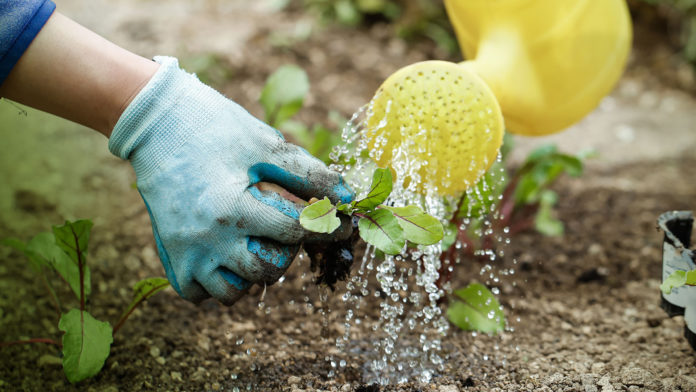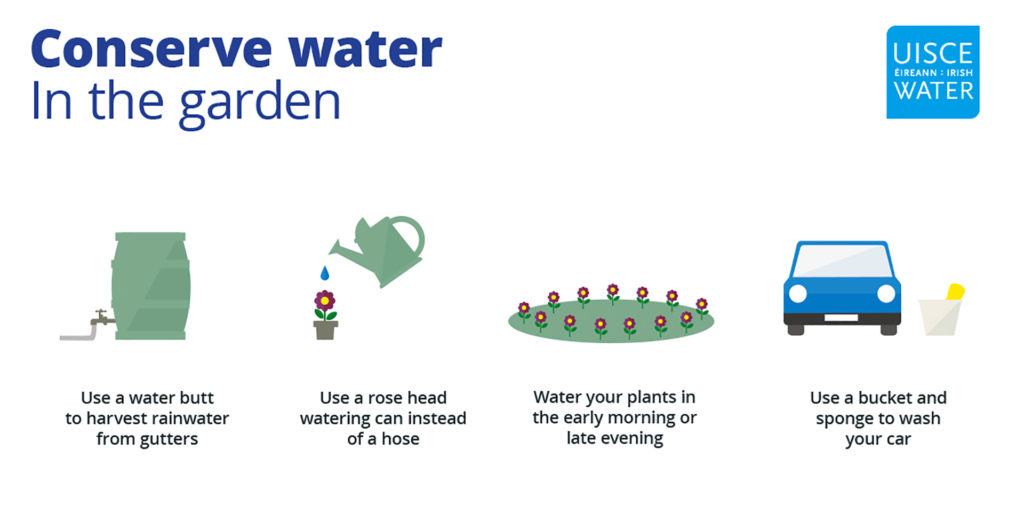
— Domestic water usage increases by an average of 20% in homes across the country —
With people adhering to government advice and staying at home since mid-March in response to the Covid-19 crisis, Irish Water has confirmed that there has been a significant increase in household water usage.
New domestic metering data has revealed that households are using an additional 24 litres of water per person per day, a 20% increase from February.
Water utilities in the UK have reported a similar increase with an increase of 27 litres per person per day.
Non-domestic water usage has decreased with many businesses, construction sites, schools, colleges, gyms, hotels, bars and restaurants temporarily closed.
This reduction in demand has helped to off-set some of the domestic demand, however as domestic demand represents two thirds of our business, our water supply is still under pressure.
In addition, when Government restrictions are lifted, many commercial premises will need to use extra water to clean and flush their plumbing systems and storage tanks or to complete deep cleans, while water usage in homes will continue to remain higher than normal.
As water treatment plants are already working to their maximum capacity, Irish Water is appealing to the public to prioritise handwashing over powerwashing and conserve water now where they can, so that together we can meet the increased demands on our network when restrictions are relaxed for businesses.
There are some simple measures that the public can take including stopping the use of powerwashers at home; using a watering can rather than a hose in the garden; taking showers over baths; and fixing any dripping taps where it is possible to do so.
There is advice and guidance for homes, businesses and farms, including information on how much water you can save with simple measures on water.ie/conservation.

Speaking about the need to conserve water, Irish Water’s Managing Director Niall Gleeson said: “It is really important that everyone follows the HSE guidance on handwashing, however there are some ways to conserve water that will not impact on hygiene.
“Insights from meter reads show that households are now using 20% more water and we can see a significant change in water usage patterns in commuter belt towns and rural areas where significant numbers of people would usually be out of the house for long periods during the day.
“We are also conscious that we have had an extremely dry spell so we are continually monitoring our water sources for any signs of drought.
“In Irish Water, we are continually looking at what we call the supply / demand balance. This means that we need to ensure that we can supply more treated drinking water than is required for use.
“We can manage this by conserving water; losing less by repairing leaks; and supplying smarter by ensuring that all of our plants are working optimally.”
“We can all work together to conserve and to ensure emergency leaks are being repaired at this time by our Local Authority and other partners.
“But in line with government restrictions to protect us all from the spread of Covid-19 other work has been postponed. It is essential that we act now to protect our supply and safeguard our water for essential usage.”
Speaking about the situation here in County Cork, Neil Smyth, Irish Water Operations Lead advised: “Some of the water sources in Cork are starting to show signs of the impact from the fine weather and the changed distribution of demand.
“Areas throughout the county will come under pressure, including on the Clonakilty Regional Water Supply in west Cork, on the Charleville supply and Newmarket Regional scheme in the north of the county to the Youghal Water Supply Scheme in the east and possibly many others in between.
“We would ask all households and businesses in operation to help maintain public water supplies across the county by conserving water where it’s possible to do so, whilst continuing to follow all health guidance. Our website details the many ways in which we can all contribute to conservation.”











